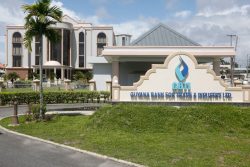The Inter-American Commission on Human Rights released a scathing 300-page report on Wednesday that says freedom of expression and the right to peaceful protest had been curtailed.
The group, part of the Organization of American States, said “political intolerance” prevails in the South American country, a major supplier of oil to the United States.
In a conference with foreign journalists, Chavez read out loud a letter written by Commission head Santiago Canton during a short-lived coup against him in 2002 and which seemed to recognize the legitimacy of the officials who replaced him.
“Santiago Canton, executive excrement, pure excrement,” Chavez said.
“We will prepare to denounce the agreement by which Venezuela is a member of this nefarious Inter-American Commission on Human Rights, and we will leave it. What for? It’s not worth it, it’s a mafia there.”
The report praised Chavez’s government for eradicating illiteracy, reducing poverty and increasing the access of poorer Venezuelans to healthcare.
But it said social and economic advances were no justification for sacrificing fundamental civil rights.
The criticism from the 34-nation hemispheric forum based in Washington echoes the complaints of his opponents who say he is a dictator-in-the-making who has undermined the independence of the legislature and the judiciary, while closing down opposition media.
A growing number of rights groups have warned that the Chavez government is using its power against opponents.
Chavez says the reports are part of a conspiracy to discredit his government, and says countries with far worse human rights records, such as Mexico and Colombia, do not face such criticism.
He said the report was timed to coincide with a visit by U.S. Secretary of State Hilary Clinton to Latin America next week and by CIA head Leon Panetta to Colombia on Wednesday.
The IACHR has been an important voice condemning the right-wing, military-backed governments that ruled many Latin American countries in previous decades.






